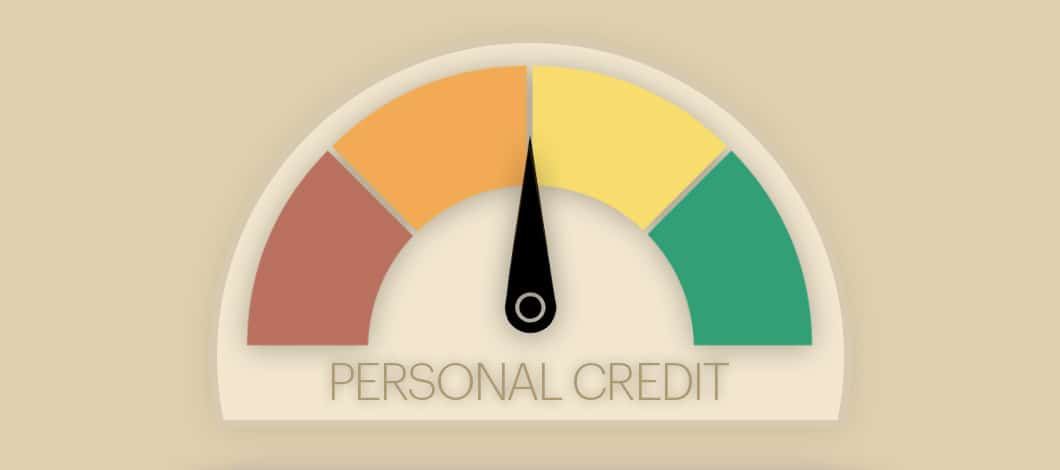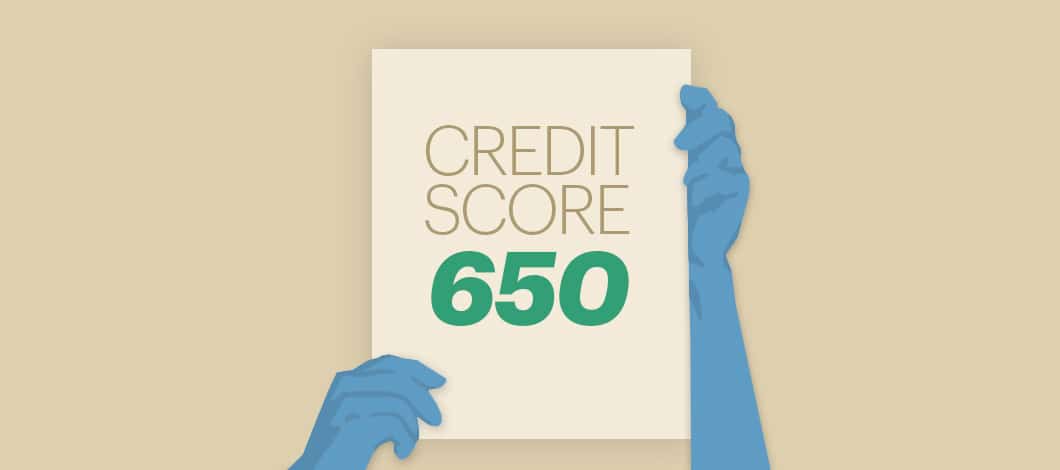Do business lenders use personal credit scores when determining whether to approve financing? The answer is yes and no.
Some lenders rely more heavily on the owner’s personal credit score than others. Let’s look at how your personal history will affect your ability to get business loans and how to get business loans if you have a bad personal credit history.
Do Business Loans Use Personal Credit?
According to a survey from the Federal Reserve Bank, 88% of businesses have relied on the owner’s personal credit score to obtain loans. That’s because, in the view of most banks and other lenders, owners and their businesses are one and the same. This is especially true for start-up businesses that haven’t had enough years in business to develop their own unique credit history, separate from the owner’s.
Your personal credit score is an indication of how well you handle money and your dependability as a borrower. If you haven’t demonstrated that you can handle your own personal finances, a lender won’t feel confident that you can manage the finances of your business either
Lenders look at your personal history as a basis to make a prediction about your willingness and ability to repay loans for your business.
How Will Your Personal Credit History Affect Your Business Loans?
When lenders makes loans to businesses, they are looking for answers to these questions:
- Does the business have the ability to repay the loan?
- Does the borrower intend to repay the loan?
- Will the borrower be able to make the loan payments even if something unexpected happens?
The owner’s personal credit history will offer some insight into the answers to these questions. Your personal credit history will:
- Determine whether you get approved or not
- Affect the interest rate on your loan
- Influence the loan repayment schedule and options
- Control the amount of money you’re able to borrow
The character of the owner plays an important factor in the repayment of the loan. If the borrower has a poor credit history with a series of late payments, this may be an indication of how the business will handle the repayment of its loans.
How Various Lenders Look at Your Credit Score
According to the 2020 Small Business Credit Survey from the Federal Reserve Bank, lenders separate credit scores into the following risk categories:
- Low credit risk – 720 and above personal credit score.
- Medium credit risk – 620 to 719 personal credit score.
- High credit risk – less than 620 personal credit score.
Borrowers with high credit scores will be able to borrow more money at lower rates and for longer terms than borrowers with low credit scores.
Certainly, different lenders have different views about how much effect your personal credit score has on their decisions. Some lenders will look more closely at your personal credit score than others.
For example, banks and credit unions will look at a borrower’s personal credit history more intensely than alternative lenders. Generally, banks and other conventional lenders like to see a personal credit score of at least 650 or higher. You’ll stand a better chance of getting a loan at an attractive interest rate if you have a credit score above 720.
Alternative lenders, on the other hand, have less strict requirements and are more interested in the quality of collateral and the operations of a business: sales, profits and cash flow. For example, alternative lenders will look more closely at the quality of your receivables and inventory to determine their value and not look so much at other parts of your business, such as financial leverage or cash flow from operations.
Investors such as venture capitalists aren’t as interested in your personal credit rating. They are more interested in your business model, its growth prospects and the possibility of cashing out their investment by going public in the future.
What Does It Take to Get a Loan From the SBA?
Borrowers like Small Business Administration (SBA) loans because they have lower interest rates and longer repayment terms compared with other lenders. However, SBA has more difficult qualification terms.
The SBA requires borrowers to have excellent personal credit to qualify for their loans. A score of 680 is the minimum allowed. Scores above 700 are preferred and easier to qualify for.
How Does Business Structure Affect the Loan?
What effect does the business structure have on the loan? Is it a sole proprietorship, a corporation or a limited partnership?
Many small businesses start out and continue to operate as sole proprietorships. Quite often, the owners commingle their personal activities with their business operations. They use credit cards to finance their businesses or borrow money personally to invest in their businesses. With a sole proprietorship, especially, the finances of the owner and the business are inseparable. The debts of the sole proprietorship are not legally separate from the owner.
Even if your business structure is a corporation, lenders will more than likely ask for a personal guarantee to back up and connect the business owner to the loan. A personal guarantee from an owner with a high credit score will lower the lender’s risk, whereas an owner with a low credit score could have a negative effect on the lender’s decision.
Can You Get a Business Loan With Bad Personal Credit?
Having a low credit score won’t necessarily prevent you from getting a loan for your business. You may not be able to get a conventional loan at a low-interest rate from a bank, but there are alternate lenders and online lenders who are willing to structure different types of loans.
The key to getting a small business loan with bad personal credit is being able to provide solid collateral.
Here are several ways you can use the assets in your business to get the financing you need:
Invoice Financing
With invoice financing, the lender makes an advance against the amount of your outstanding invoices. You retain ownership of the invoices and are responsible for collecting payments and paying back the loan advances. If there are any merchandise disputes with your customer, you’re still responsible to pay back the advances against those invoices.
Invoice Factoring
Factoring is another form of invoice financing where the factoring company buys your outstanding invoices outright, usually for 80% to 85% of their value on a nonrecourse basis. Your clients pay their invoices directly to the factor, and the factor pays you the balance less their fees. In this type of financing, the factor is more interested in the credit standing of your customers than your personal credit score.
Equipment Financing
Lenders like equipment financing loans because they can use the equipment itself as collateral. These loans are based on the business’s cash flow and have relatively attractive interest rates.
Merchant Cash Advance
Businesses that get paid mostly with credit cards, such as restaurants retailers, can use their revenue for short-term loans. A lender will make an advance against your business’s projected future credit card revenues. The lender gets repaid by taking a percentage of your credit card sales each day until the loan is paid. Because the amount of each daily payment is based on your sales volume, you’re not committed to a fixed repayment schedule.
How To Improve Your Business Credit Score
Your long-term goal is to reduce lenders’ reliance on your personal credit score to obtain financing for your business. You can do this by building up the credit score needed for a business loan.
Here are the steps you can take:
Incorporate or Form an LLC
If you’re still operating as a sole proprietorship, set up a separate business structure and get a federal employer identification number (EIN).
Register Your Business With Dun & Bradstreet
Your business will have a DUNS number that will begin to accumulate trade data to establish a credit history for the business. You can also register with Experian Business and Equifax Business.
Open Separate Bank Accounts for the Business
Use your business’s name on the bank checking and savings accounts and separate all personal activity from business operations.
Establish Trade Lines of Credit
Trade lines are the most important way to establish a positive credit history for your business. Be aware that not all vendors report to a business credit firm, such as Dun & Bradstreet. So you may need to ask them to report to the credit-rating companies to get a payment history on file.
Make Payments on Time
Creating a history of making on-time payments is the primary objective to improve your business credit score. Payments that are just a few days late may show up on a business credit report, hurting your rating. Dun & Bradstreet even has a separate score, known as Paydex, that gives higher ratings to companies that pay their bills early.






